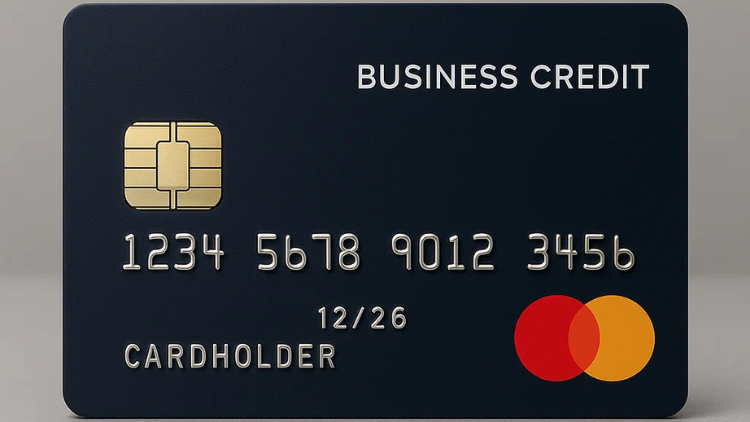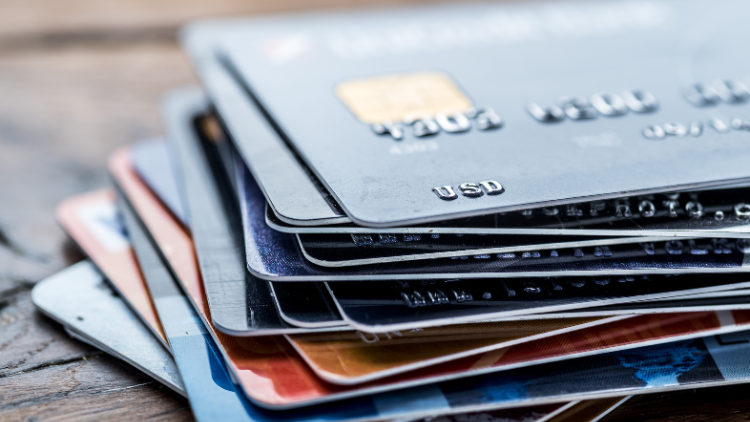As a sole proprietor, you are your business. You make the decisions, you do the work, and you reap the rewards.
This beautiful simplicity makes it incredibly tempting to run your business finances the same way you run your personal life—out of a single checking account and with your favorite personal credit card.

After all, it’s all your money, right?
While that’s legally true, relying on your personal card for business expenses can create hidden headaches, stifle your growth, and even damage your personal credit.
Getting a separate business credit card isn’t about adding complexity; it’s about building a foundation for success. Think of it as the first official step in treating your hustle like the legitimate business it is. Here are the five crucial reasons why every sole proprietor needs to make the switch.
1. It Makes Tax Time a Breeze
Let’s start with the most immediate benefit: saving yourself from a massive headache. Come tax season, are you scrolling through months of credit card statements trying to remember if that $80 Amazon purchase was for new printer ink or a birthday gift?
Separating business and personal expenses is not just a good idea—it’s essential for accurate bookkeeping.
When all your business purchases are on one dedicated card, your expense tracking is already done for you.
Every statement is a clean, itemized list of your business costs, making it simple to calculate deductions and maximize your write-offs. This clarity isn’t just for you; it’s what the IRS wants to see.
For more details, the IRS’s Self-Employed Individuals Tax Center is an excellent resource. Clean financial records reduce the risk of an audit and prove you’re running a professional operation.
2. You Start Building Business Credit
Right now, your business’s financial identity is tied directly to your personal credit score. To grow, you need to build a separate credit profile for your business. Why? Because someday you might need a business loan for new equipment, a line of credit to manage cash flow, or a commercial lease for an office space. Lenders will look at your business credit history to make that decision.

A business credit card is the easiest on-ramp to establishing that history. Most business card issuers report your payment history to commercial credit bureaus like Dun & Bradstreet. Every on-time payment you make helps build a credit profile in your business’s name, opening doors to better financing options down the road.
3. Protect Your Personal Credit Score
One of the biggest factors in your personal credit score is your credit utilization ratio—the amount of credit you’re using compared to your total credit limit.
If you charge a $4,000 piece of equipment to a personal credit card with a $10,000 limit, you’ve just used 40% of that card’s limit. This spike in utilization can cause your personal credit score to drop, even if you pay it off right away.
Most business credit cards do not report their activity to personal credit bureaus (unless you default on the card).
This means you can make large business purchases without worrying about it tanking your personal score, which is vital for your personal financial goals like getting a mortgage or a car loan. You can check your personal credit reports for free at the official, government-authorized site: AnnualCreditReport.com.

4. Access Higher Limits and Better Rewards
Personal credit cards are built for personal spending. Business credit cards are designed for how businesses spend money. This means they often come with higher credit limits, giving you more purchasing power and flexibility to manage cash flow.
Furthermore, the rewards are tailored for business owners. Instead of earning extra points on groceries, you’ll find bonus categories for things you actually buy, like shipping, internet and phone services, advertising, and office supplies. Using the right business card means you’re earning valuable rewards on expenses you already have.
5. It Professionalizes Your Business
Finally, separating your finances sends a powerful signal—to yourself and to the world. It’s a mental shift from “this is a side gig” to “this is a real business.”
Paying for client lunches or software subscriptions with a card bearing your business’s name adds a layer of professionalism that both you and your clients will notice.

Your Action Plan
Convinced? Getting started is easier than you think.
- Check Your Personal Credit: Most business card applications rely on your personal credit score for approval, so know where you stand.
- You Don’t Need an LLC: As a sole proprietor, you can apply using your own name as the business name and your Social Security Number (SSN). If you choose to get one, you can apply for an EIN on the IRS website.
- Research the Right Card: Look for a card with no annual fee to start, and one whose reward categories match your biggest spending areas.
- Apply and Separate: Once approved, use the new card for all business-related expenses and stop using your personal cards for business immediately.
A business credit card isn’t just another piece of plastic in your wallet. It’s a fundamental tool that creates clarity, protects your personal finances, and paves the way for future growth.
Frequently Asked Questions (FAQ)
Can I get a business credit card without an LLC or corporation?
Yes, absolutely. You can apply as a sole proprietor using your own name and Social Security Number.
Will applying for a business credit card hurt my personal credit score?
The application will likely result in a hard inquiry on your personal credit report, which can cause a small, temporary dip in your score.
However, the ongoing account activity for most business cards is not reported to your personal credit bureaus.
WalletAware shares education, not individualized financial advice. Always confirm current terms on the issuer’s site before applying.